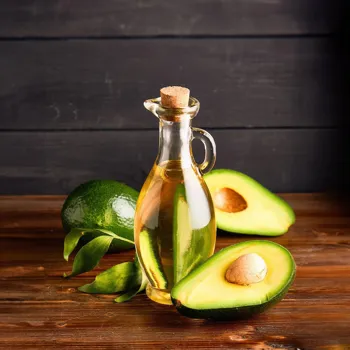Unveiling the Truth About Fats: A Deep Dive Into Essential Nutrients & Healthy Choices. Find out more!
Namaste, folks! In India, we love our food, and often that means debates about ghee in our dals, oil
in our curries, and whether that crispy pakora is really worth it. For years, fats have gotten a bad rap. We've been told to avoid them like the plague if we want to stay healthy and trim.
But the truth, like a perfectly brewed cup of chai, is more nuanced and, frankly, a whole lot more interesting. So, let's ditch the old wives' tales and dive into the real story of fats. Prepare to have your understanding of this essential nutrient completely revamped!
This detailed guide clears up all the misunderstandings.
Not all fats are equal: good fats aid health, bad fats harm
First things first, let's establish a crucial fact: not all fats are created equal. Just like there are different types of friends – some are supportive and reliable, others... well, not so much – there are different kinds of fats in our diet.
We have the "good" fats, like monounsaturated and polyunsaturated fats, which are our allies in maintaining a healthy heart and a functioning body. Then there are the "bad" fats, primarily saturated and trans fats, which, if consumed in excess, can contribute to health problems.
Think of it like this: good fats are the friends who encourage you to go for a walk and eat your vegetables, while bad fats tempt you with processed snacks and sedentary behavior. Understanding this difference is the foundation of making informed choices about our food.
It means knowing that the avocado on your toast is vastly different from the hydrogenated oil in that pack of chips. It is all about making informed and healthy choices.
Essential fatty acids like omega-3 and omega-6 maintain body balance for health
Now, let's talk about essential fatty acids. These are like VIP guests that our bodies can't produce on their own – we absolutely need to get them from our diet. The two main types are omega-3 and omega-6 fatty acids.
Omega-3s, found in things like flaxseeds, chia seeds, and walnuts, are known for their anti-inflammatory properties and their role in brain health. They're like the wise elders guiding our body's processes. Omega-6s are also important, but most of us get plenty of them from vegetable oils.
The key is to maintain a healthy balance between omega-3 and omega-6 intake. Think of it as maintaining harmony in your internal ecosystem. Too much of one and not enough of the other can throw things off balance, leading to inflammation and other health issues.
Aiming for whole plant foods keeps your ratios in check. It is easier than you think when we start to prioritize healthy foods.
Consuming fat doesn't cause weight gain; excess calories do
Many still believe that consuming fat automatically leads to weight gain. This is a myth we need to bust once and for all! The real culprit behind weight gain is consuming more calories than you burn, regardless of whether those calories come from fat, carbohydrates, or protein.
In fact, healthy fats can actually help you feel fuller for longer, reducing the likelihood of overeating. They also play a vital role in hormone production, which can influence your metabolism and appetite. Think of it this way: fats are like the foundation of a building.
If you don't have a strong foundation, the whole structure can crumble. Similarly, if you deprive yourself of healthy fats, your body won't function optimally, and you might actually end up craving unhealthy foods.
Prioritize whole, unprocessed foods over refined and processed “low-fat” options, which are frequently loaded with added sugars and unhealthy ingredients. This balances blood sugar and keeps cravings at bay.
Moderation is key when it comes to saturated fats
Saturated fats, often found in things like coconut oil and full-fat dairy, have been a source of much debate.

While it's true that excessive saturated fat intake can raise LDL cholesterol (the “bad” cholesterol), some recent research suggests that its impact on heart health might not be as dire as previously thought. The key is moderation.
Instead of completely eliminating saturated fats from your diet, focus on replacing them with healthier unsaturated fats. Think of it as a balancing act. You don't need to demonize saturated fats, but you definitely shouldn't make them the star of your dietary show.
Balance is key and focusing on whole foods helps! Remember that individual responses can vary, and it's always best to consult with a healthcare professional or registered dietitian for personalized advice.
Beware trans fats in processed foods; harmful to heart health
Now, let's talk about the real villains: trans fats. These artificial fats, often found in processed foods, are unequivocally bad for you. They raise LDL cholesterol and lower HDL cholesterol (the “good” cholesterol), significantly increasing your risk of heart disease.
It is like inviting a bad guest to your body! Fortunately, many countries, including India, have implemented regulations to limit or ban the use of trans fats in food production. However, it's still important to be vigilant and read food labels carefully.
Look for ingredients like "partially hydrogenated oil," which is a clear indicator of trans fats. Avoid overly processed foods as much as possible and stick to whole, unprocessed foods. Your heart will thank you for it. Staying away from packaged foods helps avoid these sneaky villains.
Fats are essential for absorbing fat-soluble vitamins
Fats play a crucial role in nutrient absorption. Certain vitamins, like vitamins A, D, E, and K, are fat-soluble, meaning they need fat to be properly absorbed by the body. If you're eating a diet that's too low in fat, you might not be getting the full benefits of these essential vitamins.
Think of it like a lock and key. Fat acts as the key that unlocks the door for these vitamins to enter your body and do their job. Without enough fat, the vitamins simply pass through without being absorbed.
Incorporate healthy fats into your meals to ensure you're getting the most out of your food. Add a drizzle of olive oil to your salad, sprinkle some seeds on your yogurt, or snack on a handful of nuts.
Fat needs vary per person; consult professionals for right intake
Finally, remember that fat needs vary from person to person. Factors like your age, activity level, and overall health can influence how much fat you need in your diet.
It's always best to listen to your body and consult with a healthcare professional or registered dietitian to determine the right fat intake for you. Think of it like tailoring a suit. What fits one person perfectly might not fit another.
Similarly, what constitutes a healthy fat intake for one person might not be appropriate for someone else. Pay attention to how your body feels and adjust your diet accordingly.
Understanding fats for a healthy diet
So, there you have it – the straight dope on fats! Understanding the truth about fats is essential for making informed choices about your diet and overall health. Ditch the myths, embrace the good fats, and remember that moderation is key. Now go forth and enjoy your meals with confidence!













